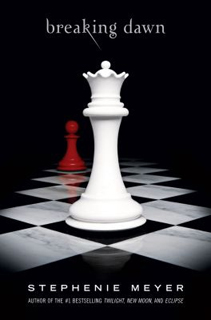
Edward Cullen, the Brad Pitt of teen literature, returns in the fourth and, thankfully, final book of the "Twilight" saga. Despite the tremendous potential, built up suspense, and frantic fanatical following the novel brags, Stephenie Meyer’s "Breaking Dawn" simply oozes, falls flat and fails to deliver.
In the fourth novel of the quartet, protagonist Bella Swan finally gets to be a little too much for a reader to handle. It becomes apparent very quickly that the reader is in for one long book- and not just in pages.
“He had the most beautiful soul, more beautiful than his brilliant mind or his incomparable face or his glorious body,” she gushes. The novel is chock full of these oh-so-adorable tidbits, randomly scattered throughout the story.
And that’s not all – Meyer provides more than enough whine to go with the cheese.
The devoted protagonist openly declares that if Cullen died, she would kill herself. While this declaration of undying love (no pun intended) may seem endlessly romantic to committed Cullen lovers, it gives a clear and unflattering image of the character Swan has morphed into. What began as simply a plain and clumsy, occasionally endearing and relateable girl has turned into a spineless, needy, cardboard cut-out.
Meyer ultimately shows young, impressionable teens that having an angel-faced boyfriend with whom you are eternally and compulsively obsessed is the green light on the road to happiness. Considering the epidemic that the "Twilight" series has become, one would think that author Stephenie Meyer would have a better idea of what girls should aim to be.
Furthermore, Cullen and werewolf Jacob Black, Bella's "protector", generally get her out of any tiff, pothole, red tape, vortex, etc., that she may get herself into. Though it seems redundant to point out once again that two out of the three main characters – the vampire boyfriend and the werewolf best friend – are not actually real, it needs to be made very clear that Bella's character is the only one that is even slightly grounded in reality. This being the case, having supernatural forces help Bella out of each and every problem also illustrates to the readers how accepting responsibility for life's greatest screw-ups is only an option.
Why get penalized when you could just call your werewolf friend to bail you out?
During the height of Bella's personal trials and tribulation, she again cashes in on her only tried and true form of thrill: cliche.
“If I couldn’t scream,” Bella agonizes, “how could I tell them to kill me?”
Oh, dear. And if she could scream? Would the 754-page novel have been any less melodramatic? Less time-consuming? Less painfully anticlimactic?
Having trudged my way through the pages and pages of sickening pain and agonizing sap, I was aching for a well-deserved BANG ending. Perhaps then, I could grit my teeth, smile and say, "Yeah, I got to the good part… eventually.”
That satisfaction, however, never came.
Just for the sake of putting salt on the wound, after yet another thorough declaration of eternal love, Meyer makes it official: The end.
Here, the reader is enraged. The reader is indignant. The reader is confused. "Wait, what?" she asks herself, "This can't be it. Did I miss the climax?"
Peeking farther back, the devastated reader realizes that there was no climax to be missed. After over 700 pages of rising action, there is no grand denouement. No peak, no apex, no grand finale.
It was like being slapped in the face. But I’ve never been slapped in the face by a 754 page novel before. It was a horrifyingly new experience.






